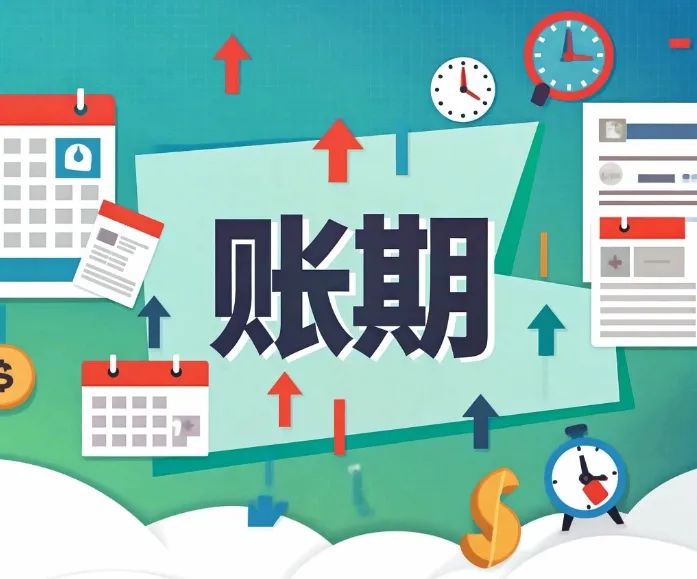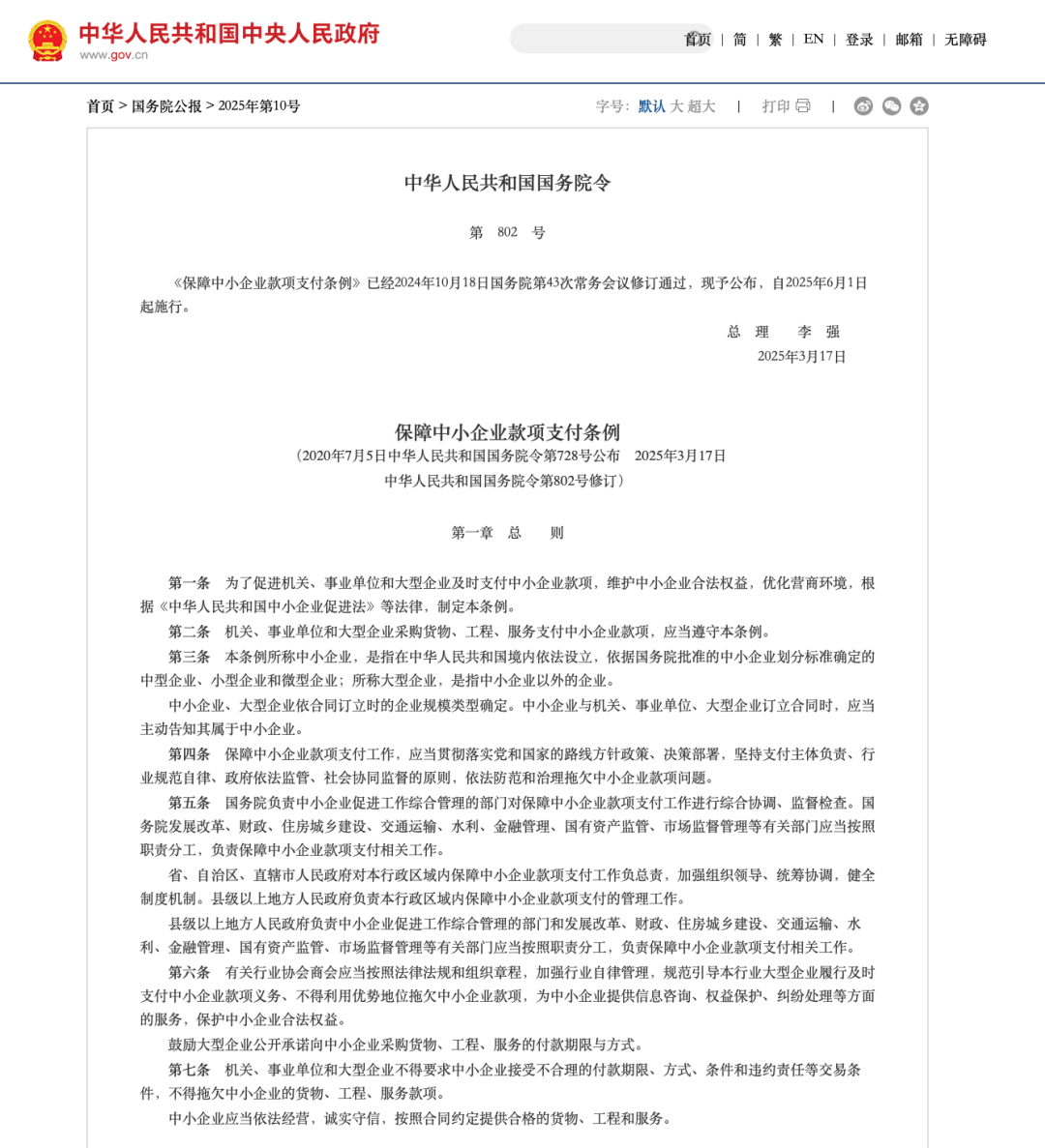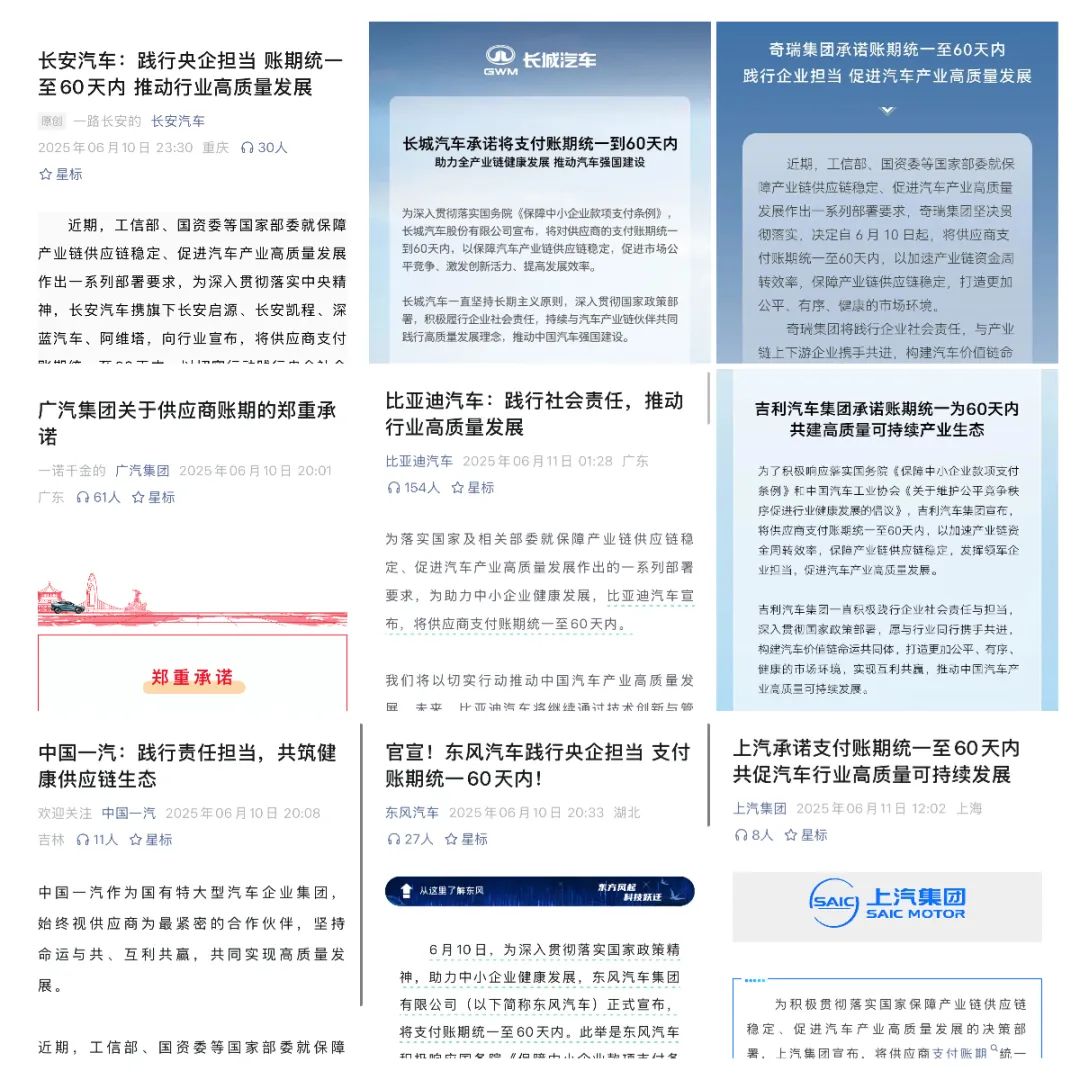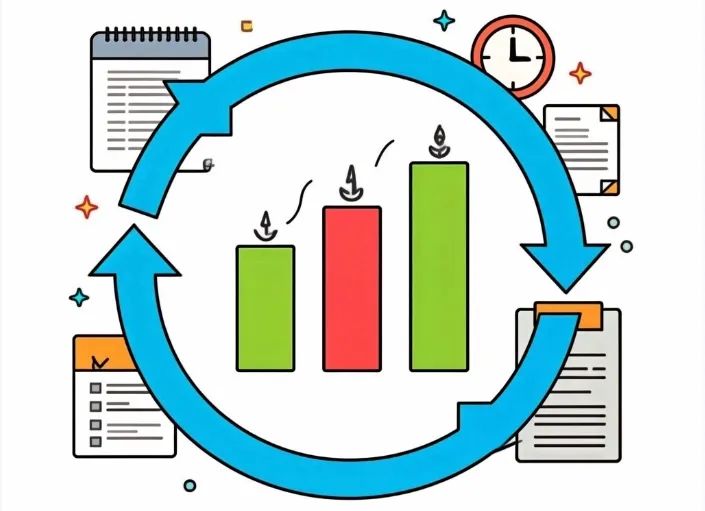60-Day Payment Term: A Turning Point for Automakers and Suppliers
![]() 06/19 2025
06/19 2025
![]() 597
597

This supplier's experience is far from unique. For years, the automotive industry in China has witnessed payment terms averaging 170 days or more, with some companies even exceeding 240 days. Suppliers find themselves trapped in a dilemma, waiting 6-12 months after delivery to receive payment.
From Six Months to 60 Days: A Leap Towards Industry Health
In October 2024, Guo Chuan, Chairman of Zhejiang Konghui Auto Technology Co., Ltd., published an open letter titled "I Have a Dream," which sent shockwaves through the automotive industry. In it, he appealed: "I dream of a day when suppliers can reconcile, issue invoices, and settle accounts immediately after goods are delivered and pass inspections, with payment received within one month of invoicing."
Guo Chuan emphasized that these demands are realistic and mirror the practices of traditional automotive powers over the past century.

For small and medium-sized suppliers, lengthy payment terms pose a life-or-death challenge. A parts supplier who works with multiple independent brands admitted: "The worst part about commercial bills is that they can't be redeemed when they mature. They're just pieces of paper, and going to court doesn't help. Even with a 60-day payment term, you might not get paid. It's better to just tell me the term is 180 days so I know what to expect."
"After being a supplier for so long, I've never seen automakers proactively discuss payment terms like this. It's like the industry has suddenly woken up," said an employee of a parts company in South China.
The issue of payment terms has long formed a chain reaction: OEMs delay payments to tier 1 suppliers by 90 days, tier 1 suppliers delay payments to tier 2 suppliers by another 90 days, and tier 2 suppliers further delay payments to raw material suppliers by another 90 days. Ultimately, small and medium-sized manufacturing plants at the end of the chain bear the brunt.
"In the past, we would automatically add a clause stating that payment is based on the automaker's terms, starting at 120 days," revealed a supplier. "During the pandemic, the longest payment term even reached 360 days, with no payment for a whole year. We had to rely on borrowing just to stay afloat."

On June 1, the State Council's revised "Regulations on Guaranteeing Payment for Goods and Services Provided by Small and Medium-sized Enterprises" came into effect, clearly stipulating that large enterprises must complete payments within 60 days after purchasing goods from small and medium-sized enterprises. Within just ten days of the policy's introduction, more than a dozen mainstream automakers collectively responded.
Automakers' Cash Flow Faces a "Big Test"
The commitment to a 60-day payment term has caused ripples in the automotive industry. Starting from the evening of June 10, automakers such as FAW Group, Dongfeng Motor, GAC Group, and Thalys led the charge in expressing support. Subsequently, BYD, Geely, Chery, Changan, Great Wall Motors, XPeng, and other companies quickly followed suit, forming a collective action led by state-owned and central enterprises, with private enterprises following suit. Behind this seemingly spontaneous collective commitment lies the dual pressure of policy and market.

For automakers, a 60-day payment term is far more than a simple numerical change. An automaker with an annual production capacity of one million vehicles may need to allocate tens of billions of funds in advance each year for reconciliation and settlement. "Shortening the payment term is equivalent to cutting off automakers' 'disguised financing' channels," pointed out an industry analyst. "The cash flow buffer space that automakers previously obtained by extending payment terms will no longer exist."
Different automakers face varying challenges. New force automakers are under greater pressure: In 2024, NIO's payment term reached 195 days, and Li Auto's was 165 days, far exceeding the requirements of the new regulations. These companies have yet to achieve stable profitability, and their cash reserves are already tight, so shortening the payment term is akin to adding insult to injury.
Some traditional automakers also face severe tests. Data shows that in 2024, Changan Automobile's payment term was as long as 205 days, SAIC Motor's was 164 days, and Great Wall Motors' was 163 days. These companies need to significantly reduce their existing payment terms by more than two-thirds, putting immense pressure on their cash flow.

In contrast, companies with higher vertical integration, such as BYD (127 days) and Geely (127 days), face relatively less pressure to adjust. GAC Group's original 82-day payment term is already close to the requirements of the new regulations.
"A 60-day payment term will become a litmus test for automakers' financial health," analyzed a senior industry insider. "Automakers with weak cash flow management capabilities will be eliminated, potentially accelerating industry consolidation."
To ensure implementation, automakers have introduced supporting measures. FAW Group has made "60-day payment" a mandatory requirement for its affiliated units, utilizing a digital cloud workbench for full-process monitoring. Dongfeng Motor is streamlining approval processes and improving payment efficiency.
The 60-Day Commitment Reshapes Industry Value
Behind this series of changes, what appears to be a simple shortening of payment terms is actually a profound shift in the competitive logic of the automotive industry. Automakers have unanimously linked shorter payment terms with strategic goals such as high-quality development, industrial chain collaboration, and ecological health.

Comprehensively, the impact of payment term reform on the entire industrial chain is multifaceted. For small and medium-sized suppliers, a significantly shortened capital recovery cycle directly reduces financial costs. For example, a chassis parts supplier that used to bear a funding cycle of nearly a year now has it shortened to 60 days, reducing financing costs and allowing resources to be invested in research and development.
Payment methods are also undergoing positive changes. BAIC and SAIC Motor have publicly committed to eliminating unreasonable settlement methods such as commercial acceptance bills. Previously, commercial bills became an "invisible nightmare" for suppliers due to high credit risk and difficulty in discounting.
"The ability to fulfill payment terms is becoming a credit asset," pointed out an industry observer. "In the future, this will be incorporated into the supply risk rating system, affecting automakers' ecological positions in the supply chain."
For large suppliers, the standardization of payment terms brings about a restructuring of strategic relationships. A senior executive of a leading supplier enterprise said: "It's not that we're unwilling to support, but often the payment term drags on for too long, forcing us to make a choice. Now everyone is competing on cost, and we can only prioritize stocking for customers with stable payment terms and strong fulfillment capabilities."
International comparisons show that this move by Chinese automakers is gradually aligning with global standards. In 2024, Toyota Motor's payable turnover days were 54.84 days, Ford's were 56.94 days, and General Motors' were 64.1 days; German automakers had even shorter payment terms, with Mercedes-Benz at 37.91 days, BMW at 42.45 days, and Volkswagen at 41.10 days.

Currently, Chinese automakers' commitment to payment terms can also be seen as a necessary step towards enhancing global competitiveness, with its deeper impact lying in the reshaping of the industrial ecology. On June 10, the China Iron and Steel Association issued an article criticizing domestic automakers for engaging in price wars, pointing out that "inward-turning" competition leaves upstream enterprises such as steel with almost no profit. Standardizing payment terms is expected to alleviate this vicious cycle.
"The commitment to a 60-day payment term is a correction of the supply chain exploitation model," said an automotive industry analyst. "A healthy industrial chain ecosystem requires a spirit of contract, mutual benefit, and win-win results."
Conclusion:
GAC Group's statement in its announcement accurately summarizes the industry's new consensus: "The healthy development of the supply chain system is the foundation for ensuring high safety and high quality of products." As BYD, Geely, and other leading automakers join the 60-day payment term commitment camp, China's automotive industry is undergoing a quiet yet far-reaching revolution.
The essence of this payment term reform is to break the long-standing "OEM hegemony" and rebuild a more fair and reasonable industrial chain collaboration relationship based on credit. The impact of the reform extends beyond just changing the numerical value of the payment term; it heralds the rebirth of a healthier and more sustainable ecosystem for China's automotive industry.







